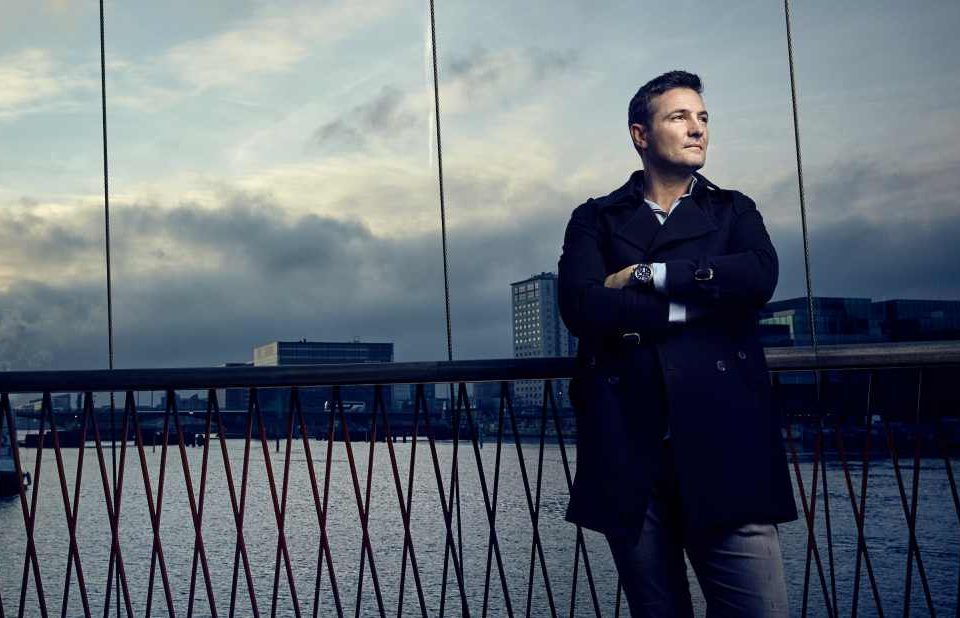How to secure your Elon Musk

This is a guest post from Jørgen Christian Juul, the founder of Danish fintech startup Cardlay and has extensive experience from holding executive positions in listed companies and other corporate organizations, and at the same time being an entrepreneur.
Starting a business is a lot more difficult than most people think. While we often read about successful startups and unicorns, the reality of the small business landscape in the U.S. paints a much darker picture: 90% of startups are failing, with a fifth collapsing within just 12 months. Of those that make it past the unfrequented one-year mark, half are no longer operational after five years.
There’s a myriad of reasons why startups are dropping like flies, from marketing mistakes to budgeting problems. However, one of the main causes is that too many entrepreneurs are starting their businesses because they need a job. They have a vague idea of what they are doing, and they think that because they’re better than their peers, they should make a living doing it. The sad truth is that without business skills and real expertise, these entrepreneurs are destined to fail.
I’ve founded more than a dozen startups, and I still don’t consider myself an expert. I, like most, make mistakes and face challenges that I alone don’t have the expertise to conquer. While entrepreneurs can often be reluctant to seek assistance – after all, it seems like the opposite of what a self-starter should do – I’ve found that the best way to meet a challenge is to find someone who can bring skills and the know-how you don’t have to the table, as well as someone who has the ability to stay locked into their vision, unswayed by external forces.
Elon Musk, for example, is going to continue to launch rockets and sell flamethrowers no matter what resistance he meets.
At Cardlay, we have found our Musk. Earlier this year, Javier Perez, one of the most successful Fintech executives in the world, saw our potential, investing in us and joining the board as vice-chairman. Previously Mastercard president, Javier brought the company from $4 billion to $350 billion, and has over the last few years mentored many young startups and brought three to IPO. If Cardlay was an electric car company, the best person to attract to the board would be Elon Musk. This is how I feel about attracting Javier Perez to our board.
Of course, it wasn’t a click-our-fingers-and-we’re-done type job. We first had to develop criteria for the type of expert we were after; for example, we wanted a “number 1” (a former CEO, President of Chairman of a unicorn fintech company), we wanted someone that specialized within payments from a top 10 global company, and someone with a strong network was an absolute must.
The search itself took two years, too. We evaluated five different candidates throughout the process, and while Javier was in our top two list from the very beginning, we knew we had to be thorough. This ultimately paid off for us, as some of the candidates clearly didn’t show the amount of interest we were after, and with some, we just didn’t have the right chemistry.
We also involved the board in the decision, which was critical. We had to decide what we can and will offer, how we should use this new superpower in the best possible way, and what vision and mission we should decide on. All of these were optimized and granulated in the discussion with Javier, after we initiated the dialogue.
Now we have Javier onboard, the pressure is really on. As a founder, I do my best to keep the team motivated; I write a post on our internal channel, where I share how our opportunities are panning out, what we should be focusing on, and how we can stay on track. We’ve also formed a “Super Management” meeting, which takes place at least once a month with our Chairman Torben Frigaard, Javier Perez, and myself, and we discuss development, obstacles, successes, new opportunities, how we need help, and how we can further improve our speed to market.
Having Javier onboard, who recognized that the commercial payment market – 95% of which is served by the incumbent banks that do not have the skills to build services for their clients – remained underserved, has created value for us from the very first talk we had. In the first quarter of 2021, we had just one opportunity, and after Javier came on board, we have had six large opportunities, all of which are progressing at pace. We now have a pipeline that is blitz scaling, along with executive access to a lot of relevant players in this market. Javier has a huge network, and relentlessly keeps track of what obstacles banks are struggling with, in turn helping us to strategically position ourselves among our competitors.
My advice for founders who want to find their guru? For starters, you have to stay focused. Many founders get so caught up in the thrill of building a new, possibly game-changing product that they lose sight of the main problem they’re trying to solve, in turn leading their once-promising company to ruin. This isn’t just something that should be implemented in your company’s overall strategy, but something that should be applied to your daily routine. Twitter founder Jack Dorsey cites focus as the primary cause of his productivity, refusing to let the lure of multitasking inform his day-to-day work schedule.
As a founder, you also need to ensure that you have your financials in place – not a wish plan, but modeling that shows key metrics and relevance and, most importantly, tells your potential guru that you have opportunities for scaling. Detailed financial planning and analysis may not seem like the best use of your time, but back-of-the-napkin calculations often lead to costly mistakes. Poor financial planning has proven fatal to many startups, even later-stage ones with tons of customers and revenue.
There’s also no way you can secure your guru alone, and if you want to build a scale-up company, you need to hire people working harder than yourself. While you might have big dreams, it’s ultimately your team that will help you to realize these goals. The most important learning in my career so far has been to onboard people that bring experience, knowledge, insights, and intellectual capacity that exceed my own. This is one of the major factors that investors will look at before giving you their money, and being able to tell them that you have the best team in place to put their investment into the right use in order to generate profit is key. Successful companies like Apple, Google, Microsoft, and Facebook have been able to grow their businesses because they understand the true value of having the right team in place.
The best advice I can give, however, is to be genuine. You can’t bullshit people that are smarter than you. Be sincere, showcase your uniqueness, and show how much you really want this. Get your facts straight, practice, and then go ahead and reach out. And you approach your must-have expert, make sure to be well prepared, and have a really strong pitch – you only have around 30 seconds to catch interest, so spend the time right.
Reach out right away, too. During the first two years as a startup, you will make more mistakes and run into more obstacles than you have experienced in the previous 10 years. Find experience, insights, and great colleagues to help you avoid most of these barriers.. But be very aware and agree on expectations. They will be your guru, help you and guide you – but it’s you that needs to run and scale the company.

